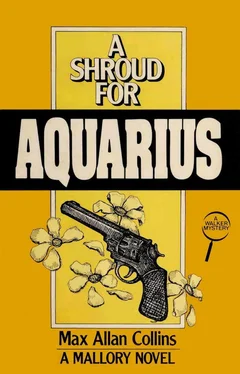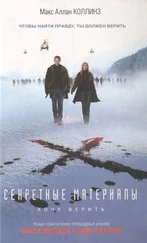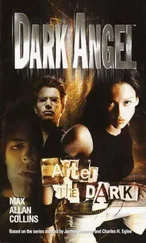“Wishing you’d stayed home, Mal?”
I found a smile. “No. I’m getting to see you, aren’t I? I don’t see Jim Hoffmann or Mike Bloom anywhere, do you?”
“No. I doubt they made it back. Hoff’s in Colorado, isn’t he? And Bloom’s in Council Bluffs or something? A lawyer?”
“Yeah. With a bank, I think. Ron Parker probably won’t be here; he’s still in the service, running an officer’s club in Hawaii. Tough duty, huh? But I wonder if John Leuck’ll make it, and Wheaty, and the rest of the guys.”
“They were here at the ten-year,” she said. “All except Wheaty — rumor is, he became a circus clown. But that’s probably just a story.”
Somehow it surprised me she would attend the ten-year reunion — even though here she was at the fifteenth. “So you made the tenth?” I said.
“Sure,” she said. “It was a great reunion. Just about everybody was there, except you.”
“I wish I’d gone.”
“And stayed home tonight.”
“Not at all. I’m sure I’ll see plenty of the guys.”
“Not to mention the gals.”
“You forget, Ginnie — I didn’t date much in high school.”
“Ah, yes — stuck on Debbie Lee. Will she be here tonight?”
I shrugged. “Probably not. She moved to Michigan or Wisconsin or someplace. I get those states mixed up.”
“Yeah,” Ginnie said, smirking again. “I get states with more than one syllable mixed up all the time, myself.”
I grinned at her. “You never change, do you?”
Her smirk turned to a smile; on reflection, I think it may have been a sad one.
“That’s not necessarily a compliment, Mal.”
“I meant it as such.”
“I know. At least you didn’t mean it meanly. But some patterns are tough to break out of, when you’ve been locked into ’em since you were a kid.”
“Such as?”
“Oh, I don’t know. How’s the writing coming?”
“Changing the subject on me?”
“No — just wondering what a girl has to do to get a book dedicated to her. I was there when it all started, kiddo. I always believed in you, you know.”
I sensed she was apologizing again for her long-ago tactless putdown in the cafeteria, but I didn’t say as much. Not in so many words, at least.
I just said, “That’s nice to know. Thanks, Gin.”
“Don’t mention it.” She stood on her tiptoes; the crowd was slowly moving into the dining room. “Is that Brad Faulkner up ahead?”
I looked, but didn’t know why; I hardly knew Faulkner back in school, and wouldn’t recognize him today if he came up and introduced himself.
But I said, “I don’t know. Maybe.”
“I hear he’s divorced.”
I didn’t know he was married.
“No kidding,” I said.
She was still on her tiptoes, presumably looking toward Faulkner.
“Tell me something, Ginnie.”
“Anything, my sweet. Or anyway, damn near anything.”
“How’s life treating you these days? ETC.’s must be making you a bundle.”
Shrugging, she told me, briefly, about selling out to Caroline Westin.
“I thought you’d hang onto that place forever,” I said.
“Nothing lasts forever,” she said. She assumed a tough-guy, side-of-the-mouth expression. “‘Live fast, die young, and have a good-looking corpse.’”
“Willard Motley, 1947,” I said.
“Right! Knock On Any Door ! Great book! You remembered that?”
“Ginnie, I gave you that book.”
Her smile melted. “That’s right,” she said, strangely sad. “How could I forget?”
“Ginnie, it’s no big deal. We both turned each other onto a lot of books.”
“He was black, did you know that?”
“Who?”
“Motley. Willard Motley.”
“Yeah, actually, I did know that. He usually wrote about white people, though.”
“It was the times,” she said. “He was better off passing for white, in his way. He could get his book read more widely, I guess. It’s better now, don’t you think?”
“How do you mean?”
“The world’s improved. Things have changed for the better, a little.”
“Maybe, a little.”
“It wasn’t all just talk.”
The crowd was moving faster now, toward our meal, and though I was following along like a good sheep, I wasn’t able to follow Ginnie’s line of thought.
“What are you getting at, Gin?”
“Just thinking about the sixties, those days. The things we marched for, and protested about; things really did change, we really did stop a war.”
“I suppose.”
We were jostled close together; her eyes looked wide and blue and empty and yet fathomless. Freckles or not, she looked suddenly old. I didn’t know she was the oldest person in the room, that she had a month to live, when she said, “I’m dreamin’, aren’t I? It really isn’t much better. We didn’t really accomplish much, did we?”
“We’re just another generation, Ginnie. Like most generations, we thought we were special.”
“And weren’t?”
“Maybe we were. Maybe we weren’t. But I know one thing we most certainly were.”
“Yeah? What?”
“Kids.”
They alternated serving plates of rare roast beef with well-done, giving you the opportunity to barter with your neighbor; we sat in the huge dining room, passing plates around, children in coats and ties and fancy dresses, exchanging food as if in the high school cafeteria. (“Trade you my dessert for your roll.”) Like all children, we weren’t content with what we were given; we had to change things to our liking.
“You know, we did change things,” I said to Ginnie, who was sitting beside me, with whom I’d swapped my well-done beef for her rare (she wasn’t eating the beef anyway, as she was strictly veggie).
“What?” she said, through a mouthful of lettuce. I’d given her my salad for her cherry cobbler. She was busy eating and had already forgotten our “heavy” conversation out in the herd.
“We changed the world,” I said, “but not to make things better for the common man. Just for ourselves.”
That got her going.
“What about Vietnam?” she said. “It wasn’t rich kids dying over there, you know.”
“No, it was some middle-class kids and lots of poor kids. White and black alike. Most males of the ‘love’ generation were at least threatened by that war, Ginnie. Guys my age were against the war because they were afraid of getting drafted. So they protested. A purely selfish move.”
Smiling with cute smugness, Ginnie pointed a lettuce-tipped fork at me, thinking she had me. “You protested after you went to Vietnam. After you got back. Was that a purely selfish move?”
“A partly selfish move. We were after better benefits from the V.A., as well as wanting to end the war. And, besides, I wasn’t a kid anymore.”
“So automatically you were unselfish, being an adult.”
“That’s a position I’d rather not try to defend,” I said, working on the lumpy mashed potatoes; the dark gravy was also lumpy. More cafeteria nostalgia.
She sighed. “You’re right. Why argue about it? We were as self-centered a generation as this self-centered country has ever known.”
“You obviously haven’t heard of MTV.”
With a gentle, short-lived laugh, she said, “This generation isn’t as smug as we were. They don’t think they know it all, like we did.”
“Unfortunately, they don’t seem to want to know it all, either. They don’t seem to want to know anything, much.”
“You’re sounding like an old man, Mal.”
“There’s a reason for that. Ginnie, tell me. Are you happy?”
She was working on her mashed potatoes now. She shrugged, forced a little smile. “I’m happy. Business is good — though I haven’t made my million yet.”
Читать дальше












